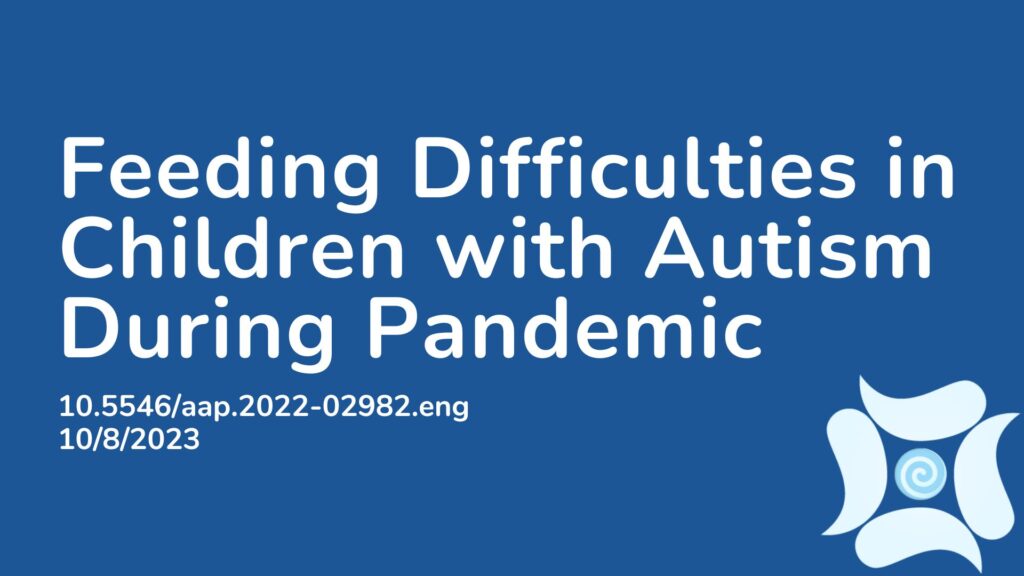Summary:
It is known that children with autism spectrum disorder (ASD) have feeding difficulties such as food selectivity, food aversions due to sensory issues, reduced ability to accept new foods and disruptive eating patterns. These factors can sometimes hinder the possibility of eating with the family at the dinner table or socialising in settings that serve food. The behaviours of children with ASD and their potential feeding difficulties have been studied in relation to the COVID-19 pandemic, to assess whether feeding difficulties were impacted. The literature to date has displayed conflicting results. Some cross-section studies have shown that approximately 28% of parents have had more difficulties in managing the feeding of their children with ASD during COVID-19 lockdowns. In contrast, another study showed that 49% of caregivers said the quality of food eaten by their children had improved during the pandemic. Therefore, the purpose of this study was to explore this further and assess the impact of the first year of the COVID-10 pandemic on feeding difficulties in children with ASD. Caregivers were administered a questionnaire which was filled out online before and during the first year of the COVID-19 pandemic. The researchers were able to score the results based on feeding difficulty severity. The results showed that during the first year of the pandemic, their children had more behavioral problems and feeding difficulties, however 31.4% of the caregivers reported improvements in feeding. Some of the behaviours that the researchers were looking at were if the child gets up from the table during the meal, is not willing to try new food and will not eat fruit and vegetables. The researchers concluded that a high frequency of feeding difficulties were apparent during the first year of the pandemic.
Abstract:
Introduction. Children with autism spectrum disorder (ASD) have difficulties adapting to stressful situations, such as the COVID-19 pandemic. Objective. To assess the impact of the first year of the pandemic on feeding difficulties in children with ASD. Population and methods. The caregivers of children and adolescents with non-syndromic ASD (age: 2-18 years) from a neurodevelopment unit were invited to participate. Participants completed a questionnaire and the Behavioral Pediatrics Feeding Assessment Scale (BPFAS) online before and during the first year of the pandemic. A priority score (product between the average frequency and the problem) for each BPFAS item was estimated. Results. Among the caregivers, 56.6% (86/152) completed the survey (mother: 74.4%); children’s median age was 6.3 years (p25-p75: 4.7-8.2); 80.2% of children were males; 58.1% continued with their therapy during the pandemic; and 61.6% had behavioral problems before the pandemic. During the first year of the pandemic, children had greater behavioral problems (34.9%) and feeding difficulties (61.6%); however, 31.4% of caregivers referred improvements in feeding. There were no significant differences in the BPFAS scores before and during the pandemic. The following items obtained the highest priority scores: gets up from table during meal, does not try new food, does not eat vegetables, does not eat fruits. Conclusions. A high frequency of feeding difficulties was noted during the first year of the pandemic. No differences were observed in feeding characteristics before and during the pandemic.
Article Publication Date: 10/8/2023
DOI: 10.5546/aap.2022-02982.eng




